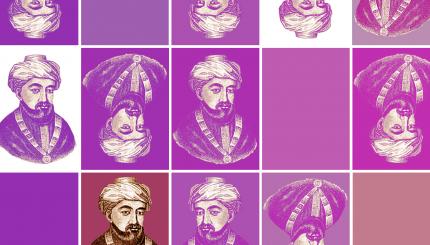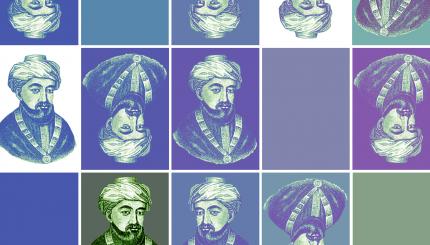Religion is often thought of as a belief system or worldview, a philosophical framework through which reality is perceived.
But this conception of religion doesn’t necessarily fit well with Judaism (and, scholars of religion would point out, doesn’t do justice to most of the world’s religions, which include behaviors, rituals, and ceremonies in addition to beliefs). In Jewish tradition and life, belief has often taken a back seat to practice. Historically, Jews have been more concerned with halakhah, the Jewish legal tradition governing Jewish practice, than makhshavah, the discipline of Jewish thought.
 In addition, it is difficult to speak of a single or official Jewish worldview, theology, or philosophy. Instead, we must speak of Jewish theologies and philosophies: the various and varied religious worldviews articulated during Judaism’s long history.
In addition, it is difficult to speak of a single or official Jewish worldview, theology, or philosophy. Instead, we must speak of Jewish theologies and philosophies: the various and varied religious worldviews articulated during Judaism’s long history.
Jewish Thought
Neither the Bible nor foundational rabbinic literature–the and works of midrash–systematically analyzes Judaism. Theological ideas–the nature of God, creation, the afterlife–can be deduced from these writings, but oftentimes the information gleaned is contradictory, and rarely is it comprehensive.

Help us keep Jewish knowledge accessible to millions of people around the world.
Your donation to My Jewish Learning fuels endless journeys of Jewish discovery. With your help, My Jewish Learning can continue to provide nonstop opportunities for learning, connection and growth.
Eventually, Jewish theology and philosophy did emerge as a unique discipline, reaching a place of particular prominence in Spain in the Middle Ages. Medieval Jewish thinkers articulated conceptual frameworks that tried to reconcile revelation and reason. Mystical theologies also gained prominence in the Middle Ages. The kabbalistic conception of God as a series of ten attributes–sefirot in Hebrew–is, to this day, one of the most studied and invoked Jewish theological concepts.
In the modern era, Jewish thinkers have confronted the new conditions of Jewish life: an increasingly secular world, the aftermath of the Holocaust, and the birth of the State of Israel.
Throughout history, Jewish thinkers have developed their theologies in dialogue with the cultures around them. From Philo‘s integration of Platonism and Judaism in the first century to Martin Buber‘s twentieth-century Jewish existentialism, Jewish thinkers have been influenced by trends in Christian, Muslim, and secular philosophy.
Doctrine & Dogma
In the Middle Ages, several Jewish thinkers composed lists of Judaism’s dogmas, or official beliefs. The most famous such list is Maimonides’ Thirteen Principles of Faith. According to Maimonides, a major 12th-century Jewish philosopher and legal scholar, belief in these creeds–which includes the existence of God, the reality of prophecy, and the eventual messianic redemption–was necessary in order to be a member of the Jewish community and gain a share in the World to Come.
Some modern scholars believe that dogma is anathema to rabbinic Judaism and that this medieval enterprise of creedal formulation was a corruption of Judaism. These scholars highlight the lack of biblical and rabbinic creeds and the traditional focus on correct action, orthopraxis, as oppose to correct thinking, orthodoxy.
However, many traditional Jews continue to affirm the importance of dogma, and some scholars suggest that it is not, in fact, foreign to Judaism. These scholars point to a selection from the Talmud that denies a share in the World to Come to those who do not believe in resurrection or the divine source of the as an example of rabbinic orthodoxy.


